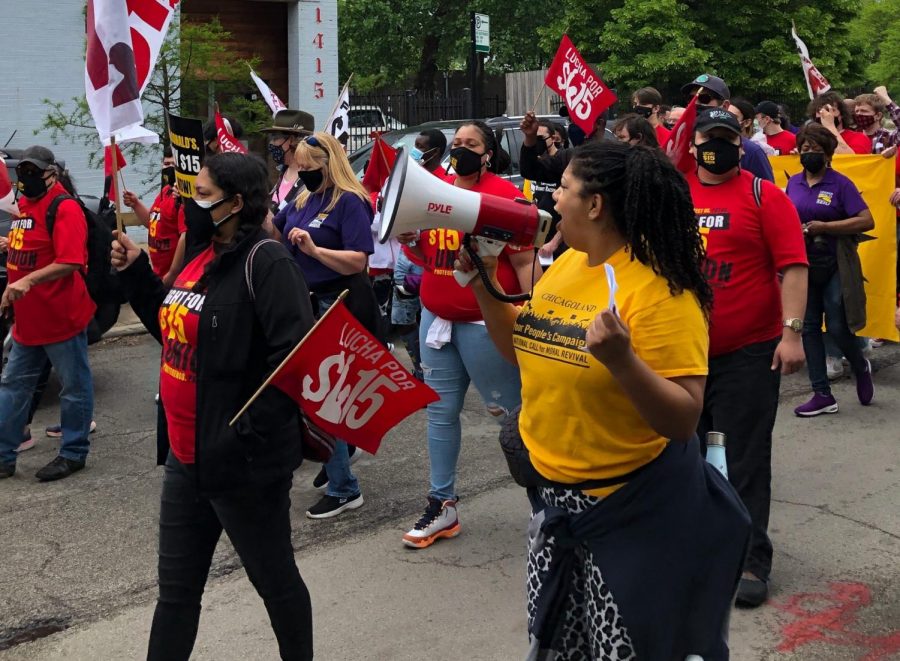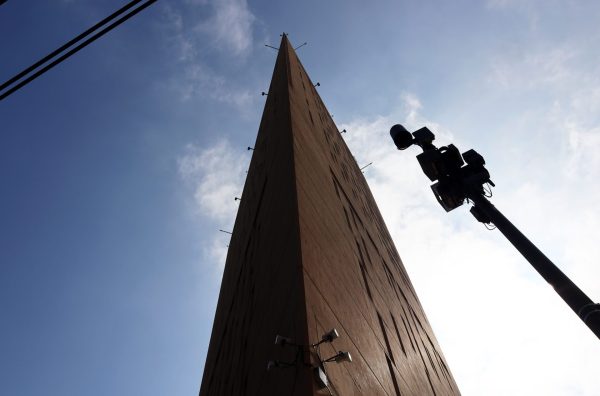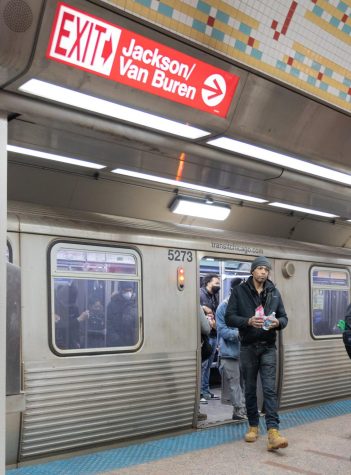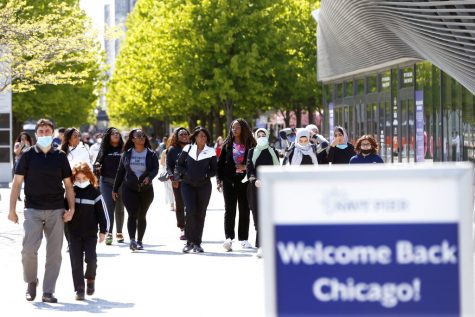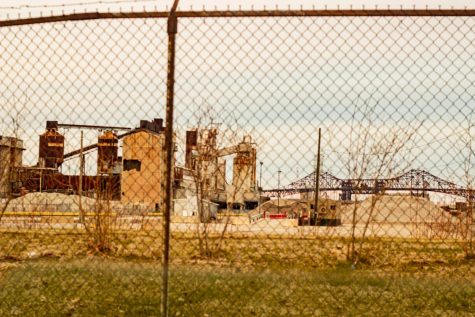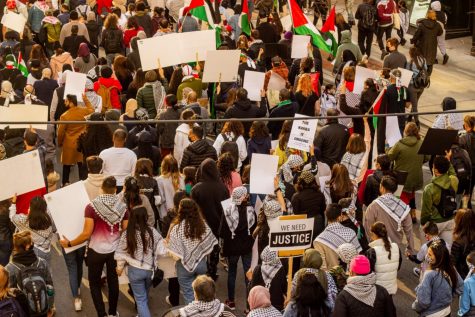Chicago McDonald’s employees demand a $15 minimum wage, join nationwide fight for 15
McDonald’s workers in Chicago went on strike along with other workers in 15 U.S cities as part of the nationwide Fight for 15 initiative.
While McDonald’s corporation continues to gain revenue during the pandemic, McDonald’s frontline workers have been surviving paycheck to paycheck to make ends meet.
On May 20, McDonald’s workers in Chicago went on strike along with other workers in 15 U.S cities as part of the nationwide Fight for 15 initiative. McDonald’s workers demand that they get paid a $15 minimum wage due to a national labor shortage in the fast food industry.
On the national level, striking workers published a letter to McDonald’s CEO Chris Kempczinski that not only demands a $15 minimum wage but also addresses the right to have a union and the company’s hiring challenges.
“We are here fighting for unity, respect and protection against the pandemic,” Teresa Cervantes said, a McDonald’s worker at the protest. The protest started at Union Park and ended with a press conference at McDonald’s global headquarters in Chicago’s West Loop.
McDonald’s said in a press release that they will be raising hourly wages for more than 36,500 employees at McDonald owned restaurants at an average of 10 percent over the next months, rising to $15 per hour by 2024.
In a tweet by Fight for $15, they said that the raise isn’t fair as it will only impact corporate-owned stores, which only make up five percent of U.S. locations.
If McDonald’s employees are paid a minimum wage of $15, full-time workers would make about $600 a week. Currently, McDonald’s employees get paid about $480 a week.
“You make billions, there should be no excuse for why you can’t pay us today,” Ieshia Townsend said, a McDonald’s worker and leader in the Fight for $15 during the strike’s press conference.
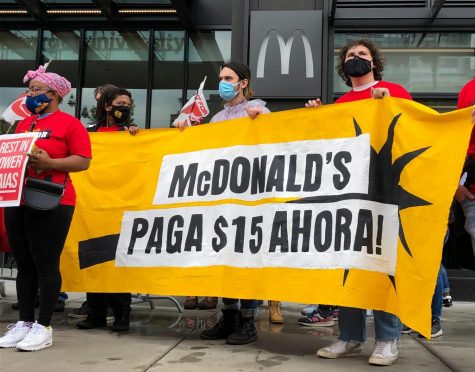
Other fast food chains like Chipotle said they will increase worker’s pay to an average of $15 per hour by the end of June.
Employers are largely being forced to raise their wages because of the conditions in the labor market such as the increased demand for workers.
“To attract those workers, they need to raise wages,” DePaul economics professor Brian Phelan said.
Phelan describes the differences when the government and the employer raise the minimum wage. When the government raises the minimum wage, an external force in the marketplace changes the price — and when that happens, there is concern about potential job loss.
The Fight for $15 initiative is different; the labor market is responding to the employment conditions and rising demand for labor. Increasing the minimum wage in this case should both raise wages and employment.
“This is a good thing for the outcome of low wage workers because they should be able to command higher wages and more individuals who want to get jobs should be able to get them,” Phelan said.
The labor shortage in the fast food industry is also due to the federal government’s Covid-19 relief package that includes stimulus checks for workers that overall increase unemployment benefits.
In March, the Biden Administration passed $1,400 in stimulus checks. Since the release of the third stimulus checks in March, eight sets of stimulus checks have been sent out since 2020.
The eighth set of stimulus checks have brought the total number of payments made to 164 million Americans, which totals to about $386 billion.
“Those are great in a sense that they have allowed households to get by in the pandemic,” Phelan said.
The first stimulus check sent Americans up to $1,200 in April 2020. This came during a time where the restaurant and food service industry lost 6.2 million jobs, according to the National Restaurant Association,
Black and Brown workers were the most affected by restaurant and food industry losses during the pandemic. According to the U.S. Bureau of Labor Statistics, in 2020, 13.9 percent of restaurant and food industry workers were Black, while 27.3 percent were Hispanic.
The Fight for $15 organization said that it is unfair that corporations like McDonald’s keep getting richer during the pandemic while employees have been working long hours with little pay.
“I have to work at McDonald’s and six other delivery jobs and I shouldn’t have to work paycheck to paycheck to survive — no parent should,” Townsend said.
McDonald’s generated a total revenue of $19.21 billion in 2020. Additionally, McDonald’s reported $5.12 billion in revenue for the first quarter of 2021.
“We are on strike today to make it clear they should not have to wait until lawmakers make in effect the minimum wage —- it needs to be in effect today,” Townsend said. “You have the funds to do it.”
Ramon Hernandez, a former Subway employee, went to the strike in solidarity with McDonald’s employees.
“I’m here to support because I have friends and family members who are not receiving the minimum wage they deserve, they are struggling,” Hernandez said. “We want a living wage to pay our rent and other necessities.”
McDonald employees like Townsend and Cervantes said that they will not stop fighting for what they deserve because they know their worth. They will continue to raise their voice and demand what’s right for them especially as they continue to face challenges from the pandemic.
“We are here fighting as parents that we need the minimum payment to raise our children,” Cervantes said. “It is very difficult to go to work during the pandemic in fear of getting sick and returning home to them.”


